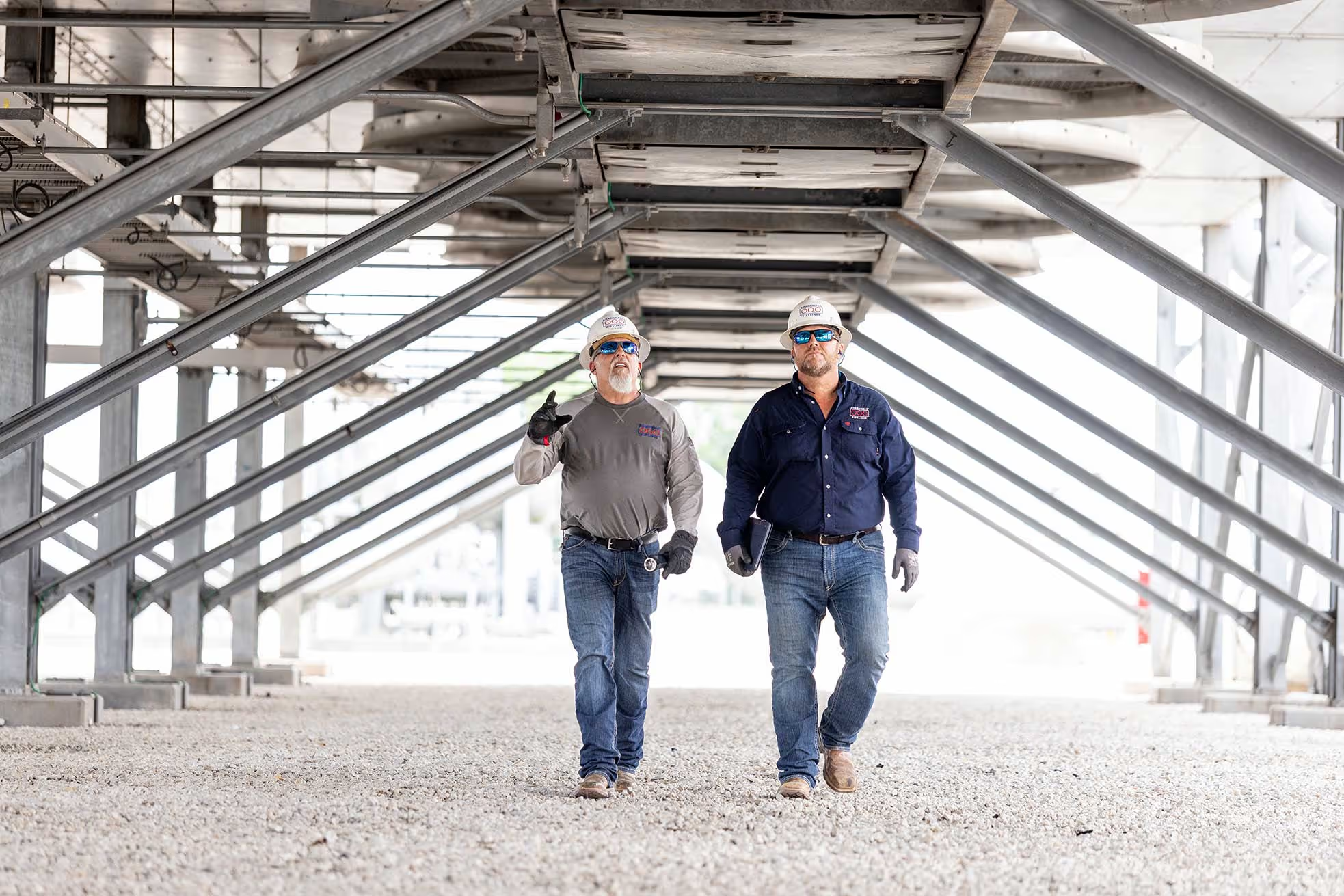Delivering energy responsibly

System reliability
Reliability is a central focus of our system, from how pipeline and storage facilities are designed to how equipment is monitored, maintained and upgraded.
Reliability is one of the most important ways we serve our customers. For Boardwalk, reliability means delivering energy where and when it is needed most. We seek to maintain that level of service with our customers even when we do the necessary work to keep our system safe and strong.
Planned outages are scheduled in advance so we can upgrade equipment, perform inspections and make improvements with as little disruption to customers as possible. Unplanned outages are unexpected events caused by a variety of external factors. We seek to minimize these outages through continuous monitoring, proactive maintenance and rapid response. The result is more dependable energy that supports economic stability and quality of life.
Enhancing component dependability
We are modernizing infrastructure to help manage operational performance. These upgrades include systems that monitor pressure, remove moisture, measure gas flow and control operations. These upgrades are designed to improve system efficiency, lower emissions, reduce maintenance and support more predictable operations and runtimes. This helps extend the life of our assets and increases overall reliability.
We also apply a data-driven, technology-enabled approach to help reduce downtime and extend asset life. Key efforts include:
- Compression Unit Monitoring Program: Since 2014, this real-time diagnostics program has enabled predictive maintenance across 63 compression units in our system, representing over half of all compression horsepower. This program aims to reduce unplanned outages and improve equipment performance.
- Unplanned Turbine Outage Program: This program strengthens our outage response capabilities, allowing us to quickly repair or replace turbines in the event of equipment failure, further supporting our operational resilience.
These efforts reflect our commitment to system integrity, risk reduction and long-term operational excellence.
Supply chain and contractors
We expect our suppliers to conduct business in a manner consistent with our Supplier Code of Conduct and provide goods and services safely and responsibly. Through our pre-qualification, selection process and required adherence to our Supplier Code of Conduct, we seek to ensure that our contractors possess attributes consistent with our values. Expectations for third parties are established and monitored by:
- Including terms and conditions in purchase orders placed with suppliers of goods and in negotiated service contracts that require suppliers and contractors to comply with applicable federal, state and local laws, ordinances and regulations.
- Sourcing approved vendors from a centralized and approved list to help ensure purchases of materials and equipment are from sources that meet our company and industry standards for safe and reliable operations.
- Requiring vendor compliance with relevant regulations and standards such as the PHMSA Operator Qualification Program and Department of Transportation regulations.
- Auditing contractor safety policies, programs, recordable incident rates and insurance liability coverage. Using these audits, our third-party service provider determines a composite safety score to measure vendors’ performance against an industry average. As part of this process, we generally do not engage with contractors with scores below 80%.
Regulatory affairs

Political and Public Policy
We are involved in political, regulatory and public policy processes at the federal, state and local levels. We maintain engagement with regulators and policymakers about the pipeline industry, regulatory and compliance strategies, reliability of the natural gas and electric grids and the role of natural gas in the energy transition. We provide practical and real-world insights based on our decades of experience operating a complex system of pipelines, compressor stations and storage caverns. These discussions support the understanding of natural gas and liquids storage and transmission facilities through the exchange of ideas and data, development of new technologies and collaboration on effective regulation of the industry. These exchanges also strengthen the regulatory process by informing the implementation of both existing and new requirements.
We participate in several industry associations, including Energy Infrastructure Council, INGAA, ONE Future, PRCI and SGA. Discussions with industry peers enable us to stay informed on new developments and collaborate with fellow operators to improve operations, enhance reliability and support compliance efforts. Industry-wide cooperation allows companies to share resources, advance compliance strategies and innovate on complex issues. We also have a Public Affairs Committee to coordinate bipartisan contributions to federal lawmakers.
Regulatory Compliance
Our business is subject to regulatory oversight by numerous federal and state agencies. Compliance with applicable laws is a key value embedded in our culture. We provide training to help employees understand applicable regulatory requirements that affect our operations. We encourage our employees to prioritize compliance in their day-to-day work, be proactive in responding to issues that arise, and raise concerns with managers and leadership as appropriate. Our legal, environmental, technical services and regulatory groups help guide key aspects of our business, including compliance with environmental regulations, pipeline safety standards and rules of state regulators and the FERC.
